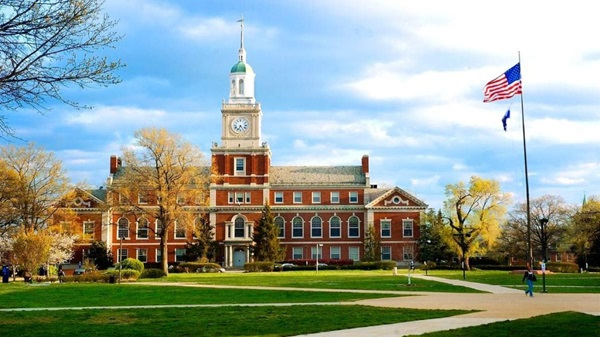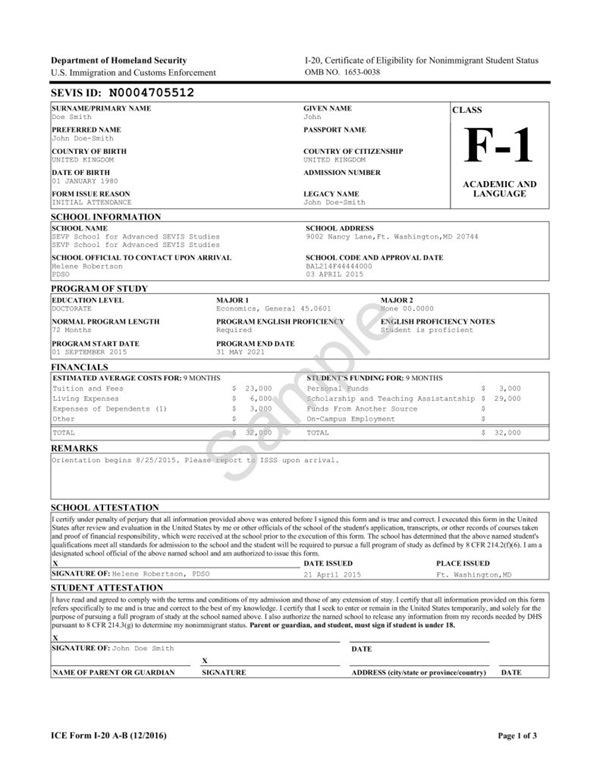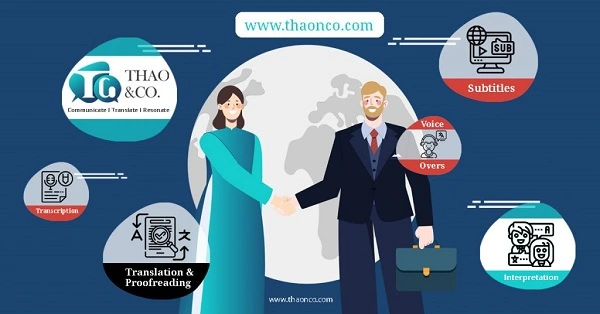Applying for a U.S. student visa is an extremely important process that can take a significant amount of time before international students are granted entry to continue their academic journey abroad. This is also a relatively lengthy and sometimes incredibly challenging and complex process when you are not well-informed about the various types of U.S. student visas, or the latest notes and regulations regarding these visa types.
Join us, Thao & Co., as we embark on an exploration of the various U.S. student visa classifications, equipping you with the knowledge needed to realize your academic dreams in the land of the Stars and Stripes!
A U.S. student visa is a non-immigrant visa designed for individuals such as students, scholars, or researchers who wish to pursue academic endeavors at accredited colleges, universities, or educational institutions in the United States for a specified period.
To obtain a U.S. student visa, the first and foremost requirement is to obtain an acceptance letter from a U.S. college, university, or educational institution. Subsequently, the process involves completing the visa application, submitting necessary documentation, and finally, participating in an interview at the U.S. Embassy or Consulate.
Before jumping into the visa application process, it is essential to have a clear understanding of the different types of U.S. visas available for educational purposes and to determine which visa category is appropriate for your specific objectives.
The F-1 visa is the most commonly sought-after visa type among all U.S. visa categories. Any international student with aspirations to enroll in a high school, college, university, or any educational program in the State will be eligible for this visa category, provided that the educational institution allows for the participation of international students.
The U.S. F1 student visa, also known as the F1 visa, is issued to international students pursuing full-time courses at educational institutions in the United States. With the F1 visa, international students have the opportunity to work up to a maximum of 20 hours per week with approval from the U.S. Citizenship and Immigration Services (USCIS) and participate in Optional Practical Training (OPT) – a non-compulsory internship program that can be pursued for up to one year after graduation.

So, how long is the duration of a U.S. student visa? This depends on the educational program and the length of the course that the international student will be participating in. Typically, student visas are valid from 1 to 5 years, and individuals must seek an extension if they wish to continue their educational pursuits in the United States.
Furthermore, there is also the F2 visa designed for dependents of F1 visa holders. Dependents in this context can include spouses, and unmarried biological children under the age of 21.
In addition to the F visa category, the M visa is another popular option for international students coming to the United States for exchange programs, non-academic studies, vocational courses, and technical training programs. Unlike the F1 visa, the U.S. M1 student visa does not permit employment opportunities and typically has a relatively short validity of less than one year.
Similar to the F visa category, the M visa also includes the M2 visa, which is designed for dependents of M1 visa holders.
As previously mentioned by Thao & Co., each type of U.S. student visa has its own specific eligibility criteria and approval standards. Here are the notable regulations that you should be aware of before applying for a U.S. student visa, to carefully plan your educational journey.
1. After completing all the documentation related to the study abroad process, you will receive the I-20 form from the educational institution. This form is used to request permission from U.S. Customs and Border Protection for your entry into the country.
2. On the I-20 form, you must clearly outline your academic plan for the duration of your study abroad and provide evidence of sufficient financial means to support your life in the United States. This can be in the form of tax returns, savings accounts, employment contracts, insurance, and asset information.

3. After submitting your visa application, you will undergo an interview at the U.S. Embassy or Consulate. During the interview, it is essential to emphasize your objectives and your intention to return to your home country upon the completion of your educational program in the United States.
4. After obtaining a U.S. student visa, it is imperative to adhere to all regulations and policies of the U.S. Department of Homeland Security to maintain the legal status of the visa throughout your study.
Recognizing the many concerns of international students when studying abroad, Thao & Co. is here to help answer some questions regarding U.S. student visas that you may not know.
You should start the application process as early as possible because the processing times for visas can be quite long, ranging from 3 months to 1 year. The ideal time to submit your U.S. student visa application is approximately 3-6 months before your anticipated start date for studies. This allows for the possibility that students may need to enter the country up to 30 days before the program start date as indicated on the I-20 form.
According to regulations, U.S. student visas do not permit off-campus employment. However, for students holding a U.S. F1 student visa, they are allowed to work within the premises of the educational institution they are attending, provided they have received permission from the U.S. Citizenship and Immigration Services (USCIS).
This is a concern for many international students and their parents. However, few people realize that visa applications submitted through third-party entities can raise suspicions among consular officers regarding the accuracy of the information provided. This is one of the reasons why the trend of independently applying for U.S. student visas is becoming increasingly popular. Some of the benefits of this approach include:
Therefore, you may consider independently handling your U.S. student visa application to expedite the approval process.
Yes, it is necessary to translate the required documents when applying for a U.S. student visa. These translations must be accurate and properly certified. Commonly certified translations for visa applications include:
Even a minor error in the translation and certification process can hinder your dream of studying in the United States. Therefore, it is advisable to seek out reputable companies that provide professional translation and certification services to ensure the accuracy and validity of your U.S. student visa application. Visit Thao & Co. today for professional translation and certification services perfectly done to the T.

Thao & Co. translation agency not only provides professional translation services performed by experienced linguists but also offers document certification services, taking you one step closer to the “golden ticket” on your journey to studying in the United States.
To receive free consultation on various types of U.S. student visas and acquire certified/notarized translations of visa documents, please visit our Get a Quote page!